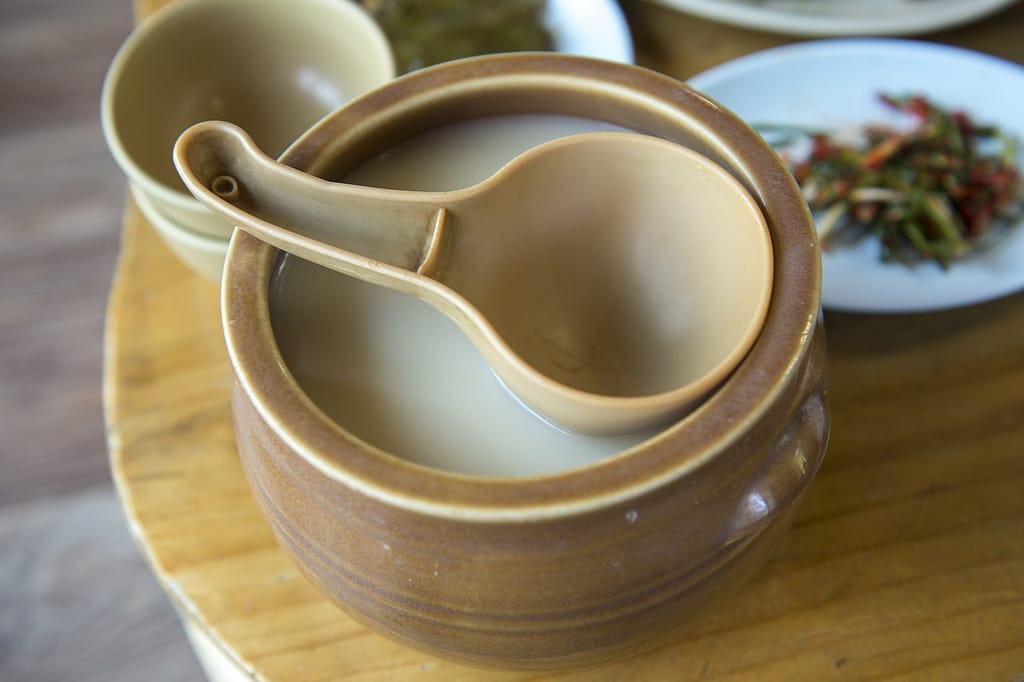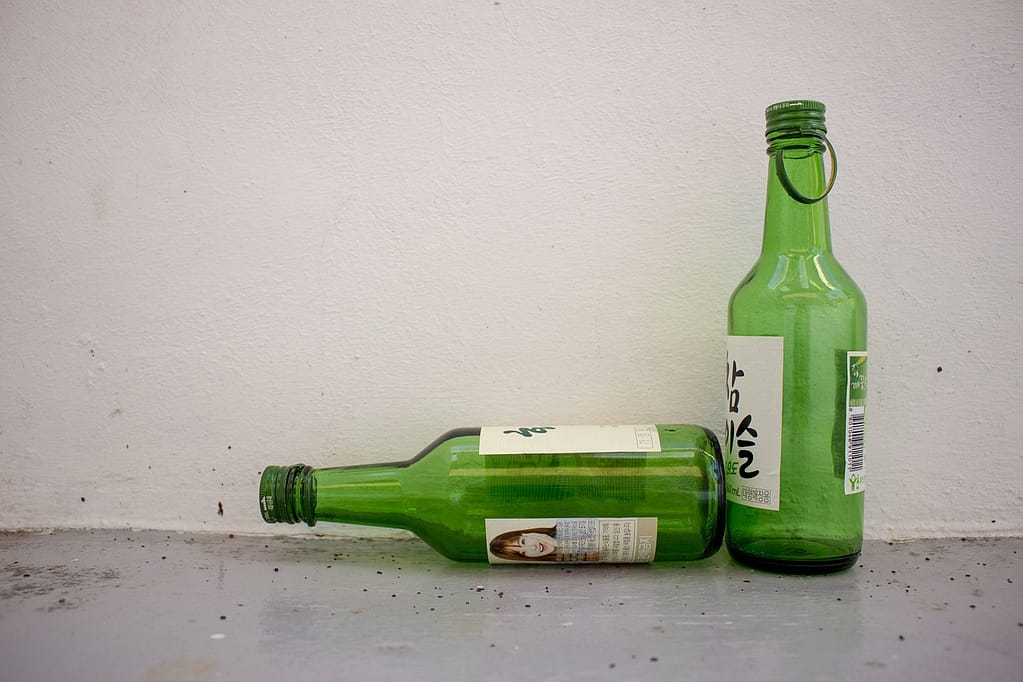Soju, a popular Korean alcoholic beverage, is a unique spirit that is gaining international recognition and popularity. Made from ingredients like rice, wheat, and barley, Soju offers a smooth and clean taste that is often described as slightly sweet with hints of fruitiness.
While it may resemble vodka in terms of alcohol content, its flavors are distinct and inviting. Whether you’re a seasoned soju enthusiast or curious about trying it for the first time, this article aims to provide you with a comprehensive understanding of what soju tastes like exactly. Additionally, From its versatile flavor profiles to its refreshing qualities, get ready to embark on a delightful journey through the world of soju.
Different Varieties of Soju
Soju, a traditional Korean alcoholic beverage, offers a delightful range of flavors and varieties to suit every palate. Whether you prefer the classic taste of traditional soju or the exciting burst of fruit flavors, there is a soju option for everyone. In this comprehensive article, we will explore the various types of soju, their ingredients, taste profiles, and even delve into the world of soju cocktails. So, get ready to embark on a flavorful journey through the diverse world of soju!
Traditional Soju
Ingredients: Traditional soju is typically distilled from grains like rice, barley, or wheat. The process involves fermenting these grains in large earthenware pots, resulting in a smooth and clean spirit.
Taste Profile: Traditional soju exhibits a mild, clean flavor with a subtle sweetness. It has a smooth and slightly creamy texture, making it a versatile drink that can be enjoyed on its own or mixed into various cocktails.
Fruit-flavored Soju
Popular Fruits Used: Fruit-flavored soju has gained immense popularity for its refreshing and vibrant taste. Fruits like strawberry, peach, green grape, and watermelon are commonly used to infuse the spirit with their natural essence.
Taste Profile: Fruit-flavored soju offers a burst of fruity sweetness with a crisp and tangy undertone. It is often enjoyed as a chilled drink, perfect for hot summer days or lively gatherings.
Herbal Soju
Common Herbs Used: Herbal soju takes a unique approach by incorporating various herbs and botanicals into the distillation process. Popular herbs like ginseng, mugwort, and ginger add distinct flavors and aromas to this variety of soju.
Taste Profile: Herbal soju offers a complex and aromatic experience. It combines the earthy notes of the herbs with the inherent smoothness of soju, resulting in a flavorful and invigorating drink.

This image is property of pixabay.com.
Chamisul Soju
Ingredients: Chamisul soju, known for its high-quality and premium reputation, is made from pure rice. It undergoes a meticulous distillation process to ensure a refined and exceptional taste.
Taste Profile: Chamisul soju boasts a clean and crisp flavor profile with a hint of sweetness and a subtle floral aroma. Its smooth and refined taste makes it a popular choice among soju enthusiasts.
Craft Soju
Small Batch Production: Craft soju focuses on small-batch production, emphasizing quality and attention to detail. Artisanal methods are employed, ensuring a more personalized and unique flavor profile.
Taste Profile: Craft soju offers a wide range of flavors, often influenced by the specific ingredients and production techniques used by the craft distillers. From bold and robust to delicate and nuanced, craft soju brings a diverse array of tastes to the table.

This image is property of pixabay.com.
Soju Cocktails
Popular Soju Cocktails: Soju is incredibly versatile when it comes to mixing cocktails. Some popular soju cocktails include the classic Soju Martini, Watermelon Soju Smash, and the refreshing Lemon-Soju Spritzer.
Taste Profile: Soju cocktails offer a delightful combination of flavors. From sweet and fruity to tangy and refreshing, these cocktails can be customized to suit individual preferences, making them a hit among party-goers and cocktail enthusiasts alike.
Also Check: What Does Vodka Taste Like?
Soju vs. Sake: Taste Comparison
Main Differences: While both soju and sake are traditional Asian alcoholic beverages, they have unique flavors and production processes. Soju is distill, whereas sake is brew like beer. Soju tends to have a higher alcohol content than sake.
Taste Comparisons: Soju has a milder taste compared to sake, with a touch of sweetness and a clean finish. Sake, on the other hand, has a more pronounced rice flavor and a slightly different texture. Both beverages are belove in their respective cultures and offer different taste experiences.
Frequently Asked Questions (FAQ)
What is soju made from?
Soju is typically made from grains such as rice, barley, or wheat.
Is soju similar to vodka?
While soju may have a similar alcohol content to vodka, its taste profile is different. Soju has a milder flavor and a smoother texture compared to vodka.
Can I mix soju with other drinks?
Absolutely! Soju is a versatile spirit that can be mix with a variety of juices, sodas, or even used as a base for cocktails.
Is soju a sweet or bitter drink?
Soju is generally consider a slightly sweet drink, offering a balance between sweetness and a clean finish.
Can non-Koreans enjoy soju?
Yes, soju is enjoyable for people from various backgrounds. Its diverse flavors and versatility make it a popular choice for all.
Does soju have health benefits?
Like any alcoholic beverage, moderate consumption of soju can be enjoyable as part of a balanced lifestyle. However, it is important to consume alcohol responsibly and in moderation.
Conclusion
The world of soju offers a remarkable variety of flavors and options to suit every taste preference. From the traditional goodness of classic soju to the exciting burst of fruit flavors, each sip of soju promises a unique experience. Whether enjoyed on its own, mixed into cocktails, or paired with delicious Korean cuisine, soju continues to captivate both Koreans and enthusiasts worldwide. So, why not raise your glass and embark on a flavorful adventure with this beloved Korean spirit? Cheers!


